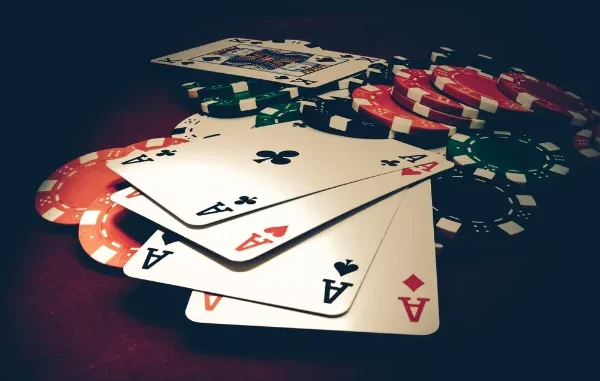

Like politics, poker is intellectual combat. It has a dueling nature, where competitors must have luck on their side to some degree to win, and to better their chances of victory, they must be able to outwit others. Like in politics, those who engage in card gambling also have incomplete information at their disposal, and they have to do their best to navigate an uncertainty-laden landscape using calculated moves, some based on probability, others on intuition.
Poker is a game of human behavior. For success, one must be able to read opponents’ cues and learn what others are up to from hints given off via body language, health signs, or speech. Moreover, as in politics, emotional control is paramount here, as is the ability to decipher when to strike.
Most things that transpire on the green cloth table, known as the felt, mirror aspects of politics. A candidate performing a soaring speech to project strength is the same as players flashing confident grins, even if they do not hold strong cards. All of this is done to project a desirable image, and a single misstep can cost individuals a lot – the pot.
The Ante & Crafting One’s Hand
The ante is the first move in all gambling games. A candidate declaring they are running for office is its political counterpart. So, this is the moment when parties make their intention public about proceeding with something.
Just like in poker, politics favors those with deeper pockets too. The resources in question do not have to be financial only. They can be institutional, reputational, or anything that can help someone push their way out of a jam or into a more beneficial situation. Still, wildcards are bound to appear even with these elements locked and loaded. For instance, a candidate announcing a run when a viral scandal hits from nowhere. At this time, resolve must come into play, and vulnerabilities try to get hidden on the campaign trail and at the table.
In poker, a player forced to go all-in early isn’t usually playing from a position of strength. He is playing out of a position of desperation. The same can apply to politics. There, the ante tests judgment and vision. When is the right moment to commit? Do you know what you want from the game, and are you ready to do what it takes?
Once a hand is underway, no one gets to choose what cards they have been dealt. What will occur next? It is up to those who have taken up the challenge to steer the ship as best they can. No politician can fully control their fate, which gets decided by the current climate and environment, like no player can govern the actions of those sitting next to or across from them. Political and poker triumph hinges on adjusting to cards on hold and those that have yet to be played.
Escalating Stakes
As card gambling rounds go on, the pot grows. When that occurs, power/pressure concentrates. That is comparable to a new major development happening. Let’s say a geopolitical incident, a substantial one that can instantly raise the stakes in the political domain, and the deeper the pot is here, the higher the costs of miscalculation.
Election season is when this is especially visible. Candidates are customarily well-behaved at the beginning. But as primaries approach, they go into aggressive mode with proactive ads and personal attacks. These are designed to get others to respond, and they must, given that the pot has increased, and they are on the defensive. That is no different than poker, where the key is knowing when to raise and hold and survive to a showdown, where one must follow through with their plan to get their reward.
Bluffing & Transparency – A Needed Balance
Players receive seven cards in 7 Card Stud, the famed poker variant found in most casinos and Bitcoin poker sites. The person dealing the cards gives out four face-up, and three face-down. This creates a partial revelation game where a player’s facade and what is obvious are vital. Why? Because they shape outcomes in a sizeable way. This matches the state of affairs politicians face when power hinges on what’s shown versus what’s concealed. The face-up cards signal intent. The face-down cards are moments that happen behind the curtain. They are the strategic maneuvers that people hate so much about politics.
Bluffing emits fake strength from a position of factual weakness like politicians telling tall tales. Something they do even at the risk of such promises being exposed as a sham, causing them harm, equivalent to saying “free healthcare for all.” Bluffing is only really the act of telling plausible enough lies, and intimidating is also one of its intents.
Transparency, conversely, is the strategic reveal of a strong card to build trust or force rivals’ hands. A player showing an ace face-up in 7 Card Stud might make an opponent fold. He holds a hefty card, and he hopes its presentation is enough to get others to make ill-advised choices because it is a sign of things to come. A politician may hope to get people on his side in a similar manner by unveiling a policy sure to be popular and make opponents panic.

Leave a Reply